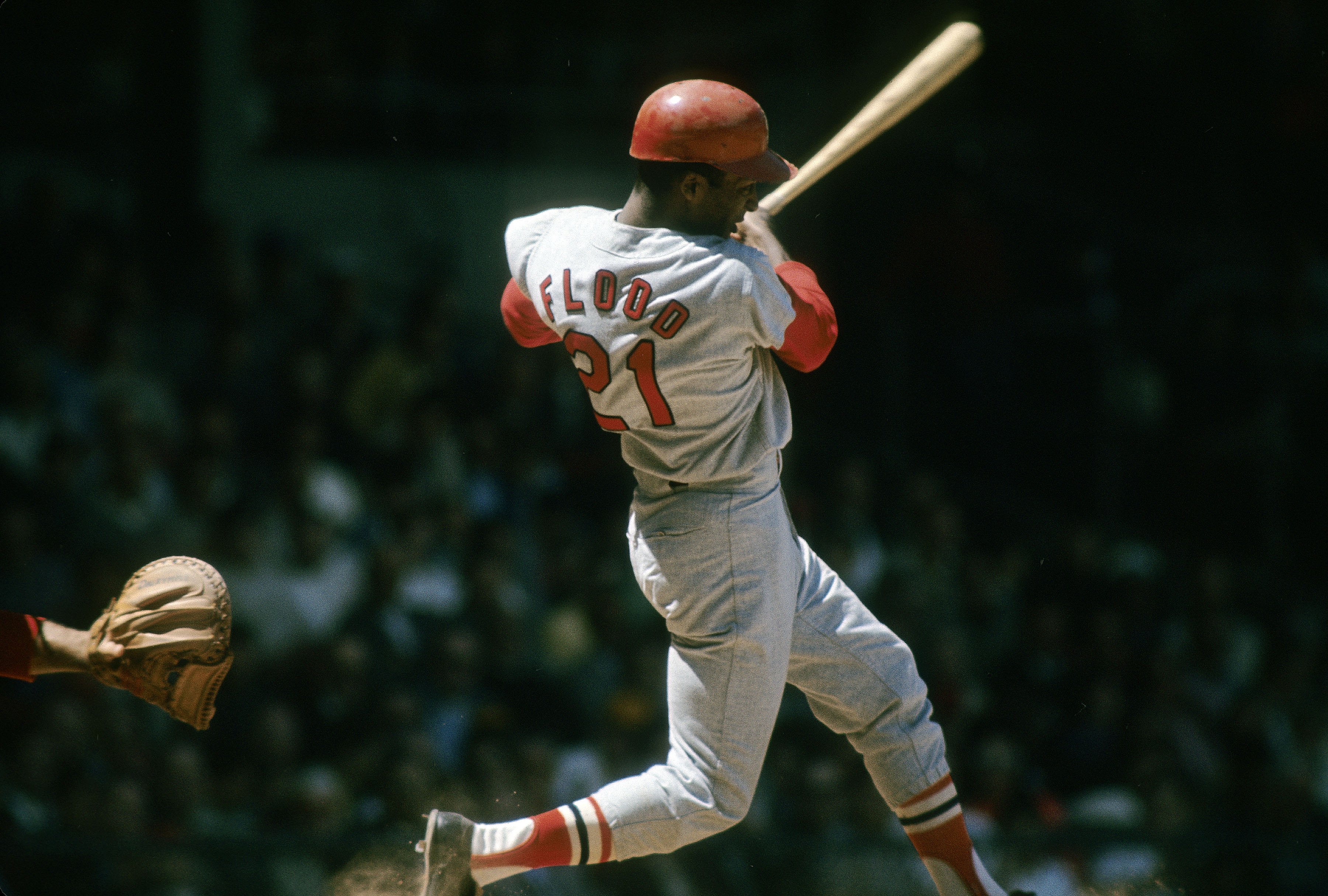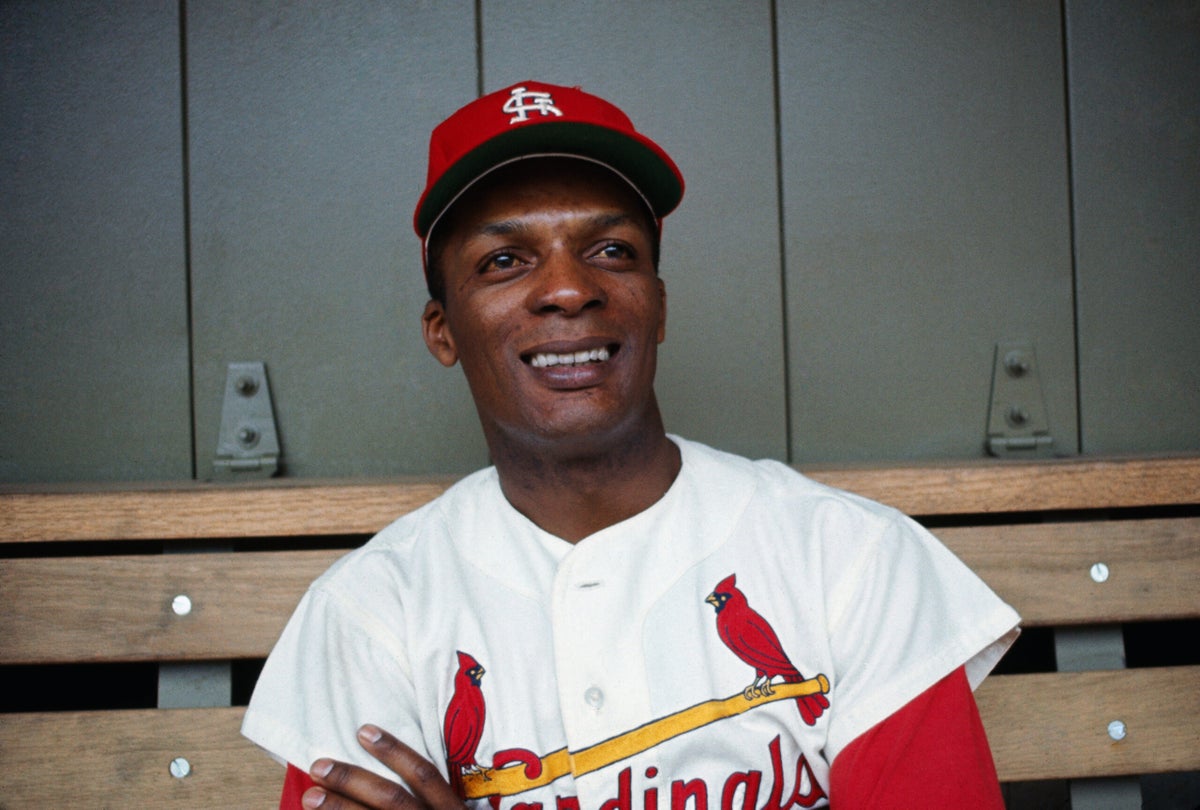The Athletic has live coverage of the 2025 MLB trade deadline.
Shelly Flood remembers those days as a young girl trying to assess the damage done to her father by his own profession. She asked her older brother Gary all about it back then, and she could not tell if Gary felt more anger or sadness that their dad was out of baseball.
Shelly was only sure that her brother felt both emotions with great intensity.
It was all over the news in 1970: Curt Flood’s fight for the right to choose where he wanted to work. He was the elite center fielder of the St. Louis Cardinals, a three-time All-Star, two-time World Series champ and seven-time Gold Glove winner who refused to accept a trade to Philadelphia, home to a lousy team and a fan base Flood later described to his daughter as particularly hostile to Black opponents.
Flood battled baseball and commissioner Bowie Kuhn all the way to the Supreme Court, arguing that the sport’s notorious reserve clause — granting teams control of players even after their contracts expired — was unconstitutional. “After 12 years in the major leagues, I do not feel I am a piece of property to be bought and sold irrespective of my wishes,” Floyd had written Kuhn after he rejected the trade.
Though the official Supreme Court box score later reported that Major League Baseball beat Flood by a score of 5-3, team owners soon discovered it was the most damaging Pyrrhic victory of all.

St. Louis Cardinals outfielder Curt Flood’s lawsuit against Major League Baseball in 1970 led the way to free agency. (Focus on Sport / Getty Images)
A ballplayer with a $90,000 wage had all but created free agency in sports and made possible a day more than half a century later when a superstar could walk out on the New York Yankees, of all clubs, and sign a $765 million deal with the team next door.
Juan Soto’s contract with the New York Mets? “That would have blown my father’s mind,” Shelly Flood said by phone. “Not that he would’ve felt (Soto) didn’t earn it or wasn’t worth it. Just to see what has happened and how astonishing it is that something my father started has built up to this.”
Built up to this seminal MLB moment in player-management relations. In the wake of Soto’s contract and Shohei Ohtani’s $700 million deal with the Los Angeles Dodgers, commissioner Rob Manfred sure seems to want the kind of salary cap in baseball that fellow commissioners enjoy in the NFL, NBA and NHL, even if he does everything he can to avoid saying those two words together.
Salary. Cap.
No, the MLB Players Association can never, ever let that happen. Not in Curt Flood’s union. Not in Curt Flood’s sport.
“My dad said, ‘We’re the ones out there on the field,’” recalled Shelly Flood, a Los Angeles-based advocate for the homeless and others in need who helps run the Curt Flood Foundation and the Los Angeles-based nonprofit Center Field For Youth. “He said, ‘No one has the right to tell you what your God-given talent is worth; that’s between you and God.’
“If I say my talent is valued at this astronomical amount, then so be it. If you can’t afford it, that’s respected. But don’t say this team over here doesn’t have the right to value players at that amount of money.”
Baseball has its share of problems, that much is clear, as it tries to find future TV rights deals that make sense. But the sport brought in a record $12.1 billion in revenue last year and, according to Forbes, fields five franchises worth at least $4 billion, including the $8.2 billion Yankees. Flood’s Cardinals, who were worth about $3 million in the outfielder’s later years, are now worth an estimated $2.55 billion.
MLB already has a competitive balance tax to act as an artificial drag on salaries and a revenue-sharing plan to help keep the little guys in the ballpark. It’s worth noting that, since the start of the 2001 season, no team has won back-to-back championships. It’s also worth noting that the Kansas City Royals have won the World Series more recently than either of New York’s payroll juggernauts.
“A cap is not about any partnership,” MLBPA executive director Tony Clark told Baseball Writers’ Association of America members at the All-Star Game. “A cap is not about growing the game. … A cap is about franchise values and profits.”
Franchise valuations never go south in sports, no matter what their owners do or don’t do. A couple of summers ago, Dan Snyder sold the Washington Commanders for more than 6 billion bucks.
If an owner no longer wants to play in the big leagues, he or she can do what Stu Sternberg just did with the Tampa Bay Rays: take an asset he bought for $200 million in 2004 and sell it for $1.7 billion.
“I hear people say that ballplayers make too much money, and why pay them that much when we don’t pay our teachers?” Shelly Flood said. “But at the end of the day, if a player can negotiate a certain value for his talent, why would you tell him that he can’t?”
Capitalism has worked out pretty nicely for the barons who own these teams. Mets owner Steve Cohen wouldn’t be worth $21 billion today if his hedge-fund earnings over the years were restricted by a salary cap.
That’s why players get angry when the issue is even raised. During a meeting last week between the commissioner and the Phillies, Bryce Harper got in Manfred’s face and profanely told him to leave the clubhouse if he wanted to talk about a potential salary cap, ESPN reported. Former player Mark DeRosa, who works for MLB, later warned the Phillies that they shouldn’t mess with Manfred because the commissioner is “a powerful guy,” The Athletic reported. DeRosa claimed he was joking.
But the players didn’t find anything funny about it.
A salary cap, Clark had said in Atlanta, “is institutionalized collusion,” not to mention the owners’ version of fantasy baseball. And the truth is, not a single fan in America cares which 1-percenters own these franchises. The paying customers only care that the owners spend what they have to spend to put winning teams on the field. And that will never change.
“What the owners are still trying to do to the players at large, it’s profoundly stupid, for lack of a better word,” Shelly Flood said. “Salary caps mean, ‘We don’t want to pay you what you are worth.’”
Curt Flood sat out the 1970 season rather than play in Philly, accepted a trade to the Washington Senators in 1971 and — troubled by his financial problems, his alcoholism and his declining skills — walked out on manager Ted Williams after 13 games. The stress of the Supreme Court case took a severe toll on his personal and professional lives. He moved to Majorca, Spain, spent years overseas and attempted to rebuild his life when he returned to the States.
Flood died young, a couple of days after his 59th birthday, in 1997, from the vile effects of throat cancer. The following year, President Bill Clinton signed into law the Curt Flood Act, revoking baseball’s antitrust exemption in labor issues. Clinton praised Flood’s “bold stand” against an unjust system and said his “enormous talents on the baseball diamond were matched by his courage off the field.”
Flood was a graceful artist around the center-field wall and an accomplished painter away from the ballpark. He was a father of five who knew he would never benefit from his fight but fought that fight anyway. Without question, he deserves a home in Cooperstown right next to the union chief who supported him, Marvin Miller.
“If the Hall of Fame is the venue that houses the history of baseball,” Shelly Flood said, “it is incomplete and inaccurate without telling the story of my father and how we got to free agency. There was sacrifice and blood, sweat and tears behind it.”
No modern-day baseball player should ever forget that. Let the other major sports have their salary caps.
Just not Curt Flood’s sport.
(Top photo: Bettmann / Getty Images)

